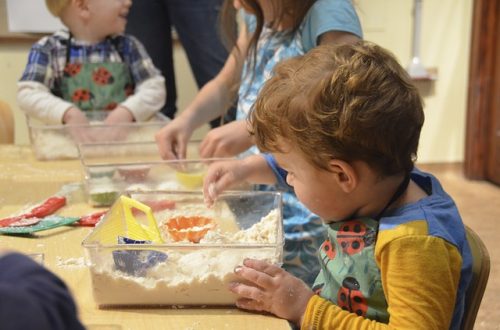Do you know someone who has autism or are you coping with a partner’s ASD? If you do, then this should be reason enough to be interested in reading about employment opportunities for them.
Job opportunities and autism concerns, let us take a look at a few. As a counselor with a specialization in handling a community of people with ASD, I encounter a lot of people on the spectrum of all ages. Can people on the spectrum have job opportunities? Let’s discuss this more in this article.

Some get diagnosed early with ASD, so they could get the immediate benefit of resources for treatment, and follow the advice of autism influencers. Their parents would only consider the possibility of them having it when they could no longer find a job to give them new job opportunities.
The biggest question is: Is there a job waiting for those people with autism? What is the impact of autism on jobs and working opportunities? Is work really possible for those with ASD to go through an application process?
Job abilities and autism are significant topics, especially for parents of children with autism. Autism and employment should be paid more sense of attention to.

The Relationship Between Career Path and Autism Spectrum Disorder
One of my newest clients with an autism spectrum diagnosis had a similar story to the latter. His name was Sean.
Getting Work For People With Disabilities
Here’s an interesting story on employment and autism and how getting a job and autism impacts parents, family members, and autism society as well.
When my empathetic husband referred a teenager with a spectrum to me, he suggested offering family counseling as well. I had seen enough of my clients’ families to realize that not all of them wanted to accept that they produced an autistic child even if they already brought them out to seek autism training help.

But our focus was to help and treat autism for that boy and to provide jobs if possible. Autistic job seekers who are unemployed really have a hard time looking for a job and starting an employment career due to their social anxiety too. They deal with social interaction issues at some point But we hoped for a better future for this person with autism who came to us for job help and strategies. We started the job search process by looking into competitive integrated employment and vocational rehabilitation services where an autistic employee can incorporate his/her favorite hobby.
Hobbies And Interests
“What are your interests and hobbies?” I asked my autistic client empathetically.
“I like building LEGO figures, making coffee for mom and dad, and identifying different linens,” the autistic child replied. Those on the autism spectrum like creating and building. Perhaps they can use these skill sets in getting a job as people with autism.
After that, I encouraged Sean’s parents to look up nearby toy stores or shops for possible recruitment for young people with autism. This transition would be ideal for Sean who has autism, as it would allow him to interact with other autistic employees, many adults, and society. Still, autism should not be the only deciding factor for Sean’s job.
It’s very important that employers should open all kinds of employment to employees with autism and provide programs like job coaching and others. Research has shown that most autistic individuals don’t have enough job opportunities compared to people with other disabilities even with postsecondary education.

“Our son loved the employee/employer interaction there,” his mother informed me. “His employment place was never too crowded. He already knew some of the employees with autism there, too. Best of all, his co-workers would train him to become a barista..” A person with autism can be very trainable autistic workers for employment, most of those on the autism spectrum that is.
Autistic individuals were known for not being in tune with their emotions. Others have impressive technical skills and social skills but must work with a sensory challenge. That’s why employers are apprehensive about employing individuals with autism in an inclusive workplace and job accommodation network.
Sean halted his job at his local Starbucks branch during the pandemic last year, which deeply upset him. The child’s parents sought autism help again for their son to make sure that he would not do anything drastic without a job placement. Autism speaks of the inclusion of erratic behaviors. Therefore, one must know what not to say to individuals with autism disorder.

He got employed again, and last I heard, his employer was preparing him to do a barista workshop for other young adults with autism.
Research suggests that young people with autism often identify sensory challenges in the workforce, but being autistic cannot hinder one’s employment. If you want to learn more about employment and autism possibilities, read more articles at BetterHelp. Or you can talk to an advocate professional who has extensive ability and knowledge of individuals with autism and their employment opportunities.

Frequently Asked Questions
How Does Autism Impact Your Capacity To Work?
Autism spectrum disorder (ASD) can impact a person’s capacity to work in various ways. It may involve challenges in communication, sensory sensitivities, social interactions, and executive functioning. However, individuals with autism also possess unique strengths, such as hyperfocus and specialized skills, which can contribute positively to the workplace. By fostering an inclusive environment, offering support, and recognizing these strengths, employers can help individuals with autism spectrum disorder excel in their careers and make valuable contributions to their professions.
How Can An Autistic Person Be Appropriately Trained In The Workplace Culture?
Training individuals with autism in workplace culture requires a holistic approach that considers their unique needs and mental health. This includes education and awareness about autism, clear communication, visual aids, structured environments, and accommodations tailored to individuals with autism. Social skills training, peer sensitivity, and ongoing support are essential for both their professional growth and mental health.
Is It Hard For People With Autism To Work?
The ability of young adults to work varies widely based on factors like their individual strengths, job compatibility, and available support. Similarly, autistic adults may face unique challenges and strengths when it comes to employment, often including sensory issues. While some individuals in both groups may encounter difficulties in social interactions and communication, others excel in roles that align with their strengths and interests.
What Are The Limitations Of People With Autism In Terms Of Employment?
Why Is It Hard For People With Autism To Get A Job?
Should I Tell The Employer I’m Autistic?
Is Autism A Disability?
Yes, autism is a developmental disability that affects social interaction, communication, behavior, and sensory processing. The spectrum varies in its impact, and organizations like the Center for Autism provide ways to give support and advocacy for individuals and families affected by autism.
Why should you consider hiring employees or someone with autism?
What jobs are good for high-functioning autism?
What are the struggles of working adults who are on the spectrum?
What are the strengths of autistic employees?
Can people with autism work full-time?
What percentage of autistic people get jobs?
How do autistic people find jobs?
Can I not work if I have autism?














